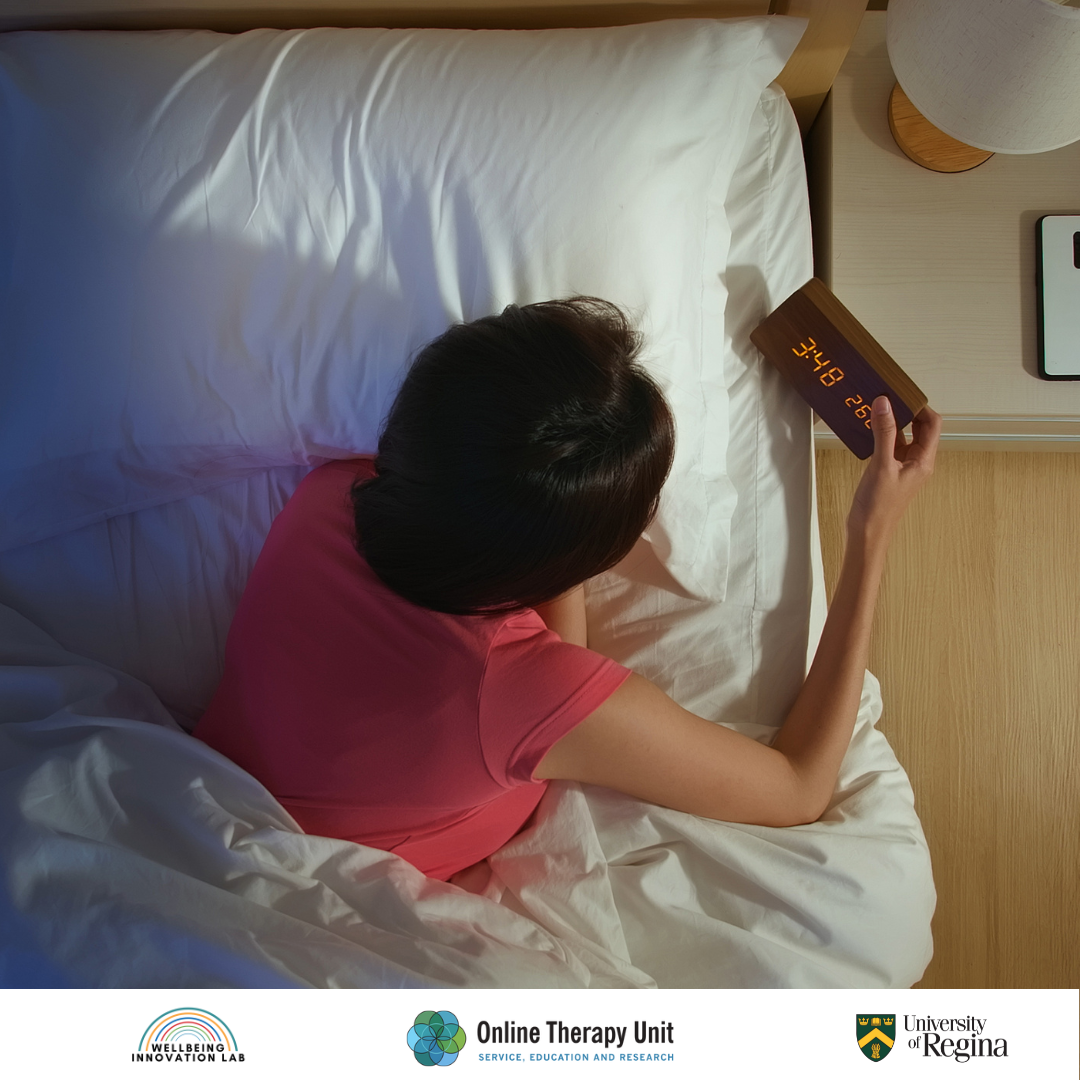Treating comorbid insomnia in patient enrolled in therapist-assisted transdiagnostic internet-delivered cognitive behaviour therapy for anxiety and depression: A randomized controlled trial
Doctoral Dissertation Results, Michael Edmonds 2023
Background: Transdiagnostic Internet-delivered cognitive behaviour therapy (ICBT) for patients experiencing anxiety and depression can produce large improvements in symptoms. Comorbid insomnia is common among individuals seeking treatment for anxiety and depression, yet transdiagnostic ICBT rarely targets insomnia and many ICBT patients report that symptoms of insomnia remain after treatment. This trial explored the impact of including a brief intervention for insomnia alongside an existing transdiagnostic ICBT course that included brief weekly therapist assistance.
Method: The current study used a two-group randomized controlled trial design. Patients were randomly assigned to receive one of two 8-week interventions: a Standard transdiagnostic course or a Sleep-Enhanced course, which included information on sleep restriction and stimulus control. Primary outcomes were assessed at pre-treatment, weekly during treatment, post-treatment, and three-month follow-up. Primary outcomes included symptoms of insomnia, depression, and anxiety.
Results: Patients reported significant, large reductions in all primary outcomes from pre-treatment to post-treatment, with changes maintained at 3-months. Patients assigned to the Sleep-Enhanced course reported larger reductions in insomnia than patients in the Standard transdiagnostic course at post-treatment but no significant group differences in any of the primary outcomes were found at follow-up. Patient-reported adherence to sleep restriction guidelines was associated with greater reductions in insomnia symptoms during the course.
Conclusions: Overall, patients who received the Sleep-Enhanced course were satisfied with the materials and most patients reported making sleep behaviour changes. The trial results demonstrate that including a brief intervention targeting insomnia can be beneficial for many patients who enroll in ICBT primarily for symptoms related to anxiety and depression.
Can patient characteristics at intake predict patient response to therapist-assisted transdiagnostic internet-delivered cognitive behavioural therapy?
Masters Thesis Results, Michael Edmonds 2018
Background: The Wellbeing Course is a transdiagnostic online program designed to treat anxiety and depression. The five lesson course teaches patients skills for managing anxiety and depression based on principals of cognitive behavioural therapy and includes weekly therapist contact via telephone or secure message. The program has been shown to reduce symptoms in patients overall and, on average, patients report a high degree of satisfaction. Although the program is effective overall, only 75% of patients complete the program and only 50% of patients complete the program and report a reliable reduction in either anxiety or depression. The aim of this research was therefore to examine patient outcomes further and look for relationships with patient characteristics that might allow us to predict which patients are most likely to benefit from online therapy.
Method: Patient case records from 1201 patients who enrolled in the Wellbeing Course were compiled and analyzed to look for relationships between patient characteristics at intake and patient outcomes. Autoregressive latent trajectory modeling was used to look for relationships between patient characteristics and patient symptom change over time. Classification trees were created to predict treatment dropout and overall treatment success.
Results: Younger people were found to be at greater risk of dropping out from online therapy. Higher initial severity of anxiety or depression was related to greater improvement over the course of therapy. Age and relationship status were related to anxiety symptom trajectories, while education and initial psychological distress and disability scores were related to depressive symptom trajectories.
Conclusions: Although some groups were identified as being at higher risk of dropout or not improving, none of these effects were strong enough to suggest that exclusion criteria for the program should be changed. Instead, future research should look at how the program can be modified to improve outcomes for at-risk groups.

